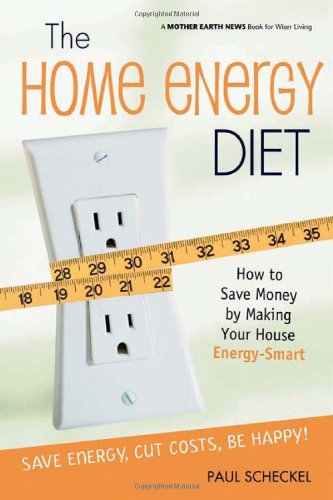

Most ebook files are in PDF format, so you can easily read them using various software such as Foxit Reader or directly on the Google Chrome browser.
Some ebook files are released by publishers in other formats such as .awz, .mobi, .epub, .fb2, etc. You may need to install specific software to read these formats on mobile/PC, such as Calibre.
Please read the tutorial at this link: https://ebookbell.com/faq
We offer FREE conversion to the popular formats you request; however, this may take some time. Therefore, right after payment, please email us, and we will try to provide the service as quickly as possible.
For some exceptional file formats or broken links (if any), please refrain from opening any disputes. Instead, email us first, and we will try to assist within a maximum of 6 hours.
EbookBell Team

5.0
88 reviewsWith rising energy costs, homeowners are beginning to examine the energy efficiency of their own homes, asking questions about where energy comes from and how much it costs, how to choose new appliances and what options exist for renewable energy.
The Home Energy Diet answers all these questions and more while helping readers take control of their personal energy use and costs so they can save money, live more comfortably and help the environment. Energy auditor Paul Scheckel first explores energy literacy, and then describes how your home uses—and loses—energy you pay for via:
Electricity
Hot water
Heating and air conditioning
Windows, walls and insulation
The Home Energy Diet involves readers in learning about their own homes by: measuring, metering, investigating and considering habits related to household energy use; learning how to quantify energy consumption and cost and making informed decisions about cost-effective improvements and upgrades. The book explores the misunderstood concept of efficiency versus cost by comparing fuel costs and equipment choices, including the possibility of using renewable energy for meeting home energy needs. This authoritative guide makes efficiency fun through personal anecdotes and humorous “tales-from-the-basement” energy misadventures.
Since energy efficiency is an investment that offers returns greater than Wall Street, readers can earn several hundred dollars every year just by following the advice in this book. As a bonus, many of the energy-saving strategies described can make for improved indoor air quality and healthier, more comfortable homes.
Paul Scheckel is an energy auditor who has visited thousands of homes, educating people about energy efficiency, cost-effective improvements and indoor air quality. With a passion for efficiency and renewables, he walks the talk by living in a solar-powered house and driving a car powered by vegetable oil in his home state of Vermont.